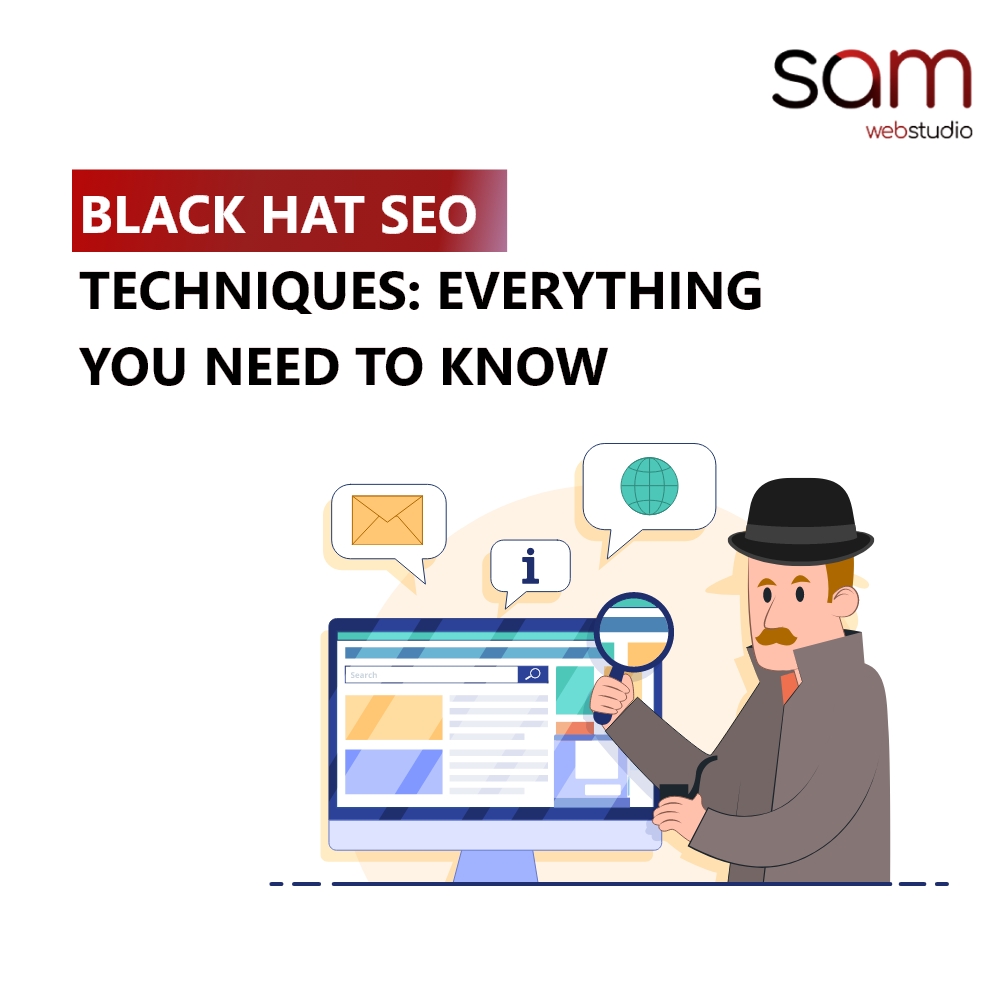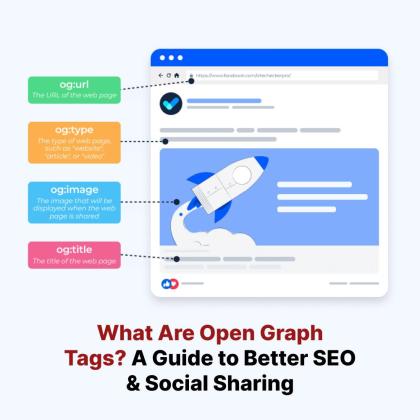Black Hat SEO Techniques: Everything You Need to Know

Whether it is a startup or a large business, most people take advantage of the best SEO strategies to make their website highly ranked in SERP (search engine results pages).
If you already have a website, you may know the importance of SEO for website ranking.
For the last many years, black hat SEO tips have become the talk of the city. Some people view it as harmful, while others see it as a fast way to get traffic to a website.
The main question is: what exactly is black hat SEO, and why should you know about it, especially if you are a website owner, seo company or experts?
Here's everything you should know about black hat SEO. This guide will help you understand all the nuances of this practice. It also teaches you how to use trustworthy search engine techniques on your website. Here we go.
What is Black Hat SEO?
Black hat SEO are practices that violate search engine guidelines. These are unethical ways to rank your website in search engines.
Google is a search engine where most users find their queries and visit relevant websites that are useful for them.
Imagine that there is a website that comes to the top of the search engine result pages but provides cheap value to its users. If you ever come to such a website, this could indicate the use of black hat SEO techniques.
Why is Black Hat SEO Harmful?
In a way, black hat SEO is a strategy to expand your reach and increase website engagement. However, all of this is temporary because search engines dislike these techniques. When their algorithms find that any website uses these unauthorized practices, they can take penalties, deindex that website, give warnings, rank demotion, or lose trust in it.
Here are some repercussions of using black hat SEO in your website ranking:
- Your website can get banned: It is crucial to know that Google always prioritizes white hat SEO practices.Your website can get banned by Google if it finds you using unethical techniques for ranking.
- Penalties and warnings: Penalties and warnings can also have consequences when you violate the guidelines of a search engine.
- Deindexing: Deindexing refers to a situation in which search engines remove your website from its indexes. And your site can never be visible on their result pages.
- Loss of trust:Your users and search engines alike can lose trust if your website does not include white hat SEO practices.
- Negative impact on brand: Black hat SEO technique can impact your repetition. It can put your business identity down.
Black Hat Vs White Hat SEO
Black Hat Vs White Hat SEO
If you get confused between black hat and white hat SEO, here are the fundamental differences between these two practices:
Black Hat SEO |
White Hat SEO |
|
Techniques: This practice refers to manipulating search engine guidelines. |
Techniques: This practice refers to using the recommended techniques of search engines. |
|
Intent: It aims to gain instant improvement by favoring search engines over audiences. |
Intent: It aims to gain long-term improvement by giving value to audiences. |
|
Risk: High risk of bans, penalties, deindexing, etc. |
Risk: Minimum riskof bans, penalties, deindexing, etc. |
Which are the Highly Recognized Black Hat SEO Techniques?
There are numerous black hat SEO techniques available. Giving your primary attention to the highly recognized techniques helps you avoid the possible risks on your website. Some of the harmful SEO techniques that go against search engine policies are listed below:
Using Paid Links:
Paid links refer to a technique in which an SEO executive or website owner pays other webmasters to include links that point to their website. It is a clear violation of search engine guidelines. You may get instant traffic on your website, but it is not a secure method for a long time.
Blog Spam Comments:
Some businesses often make promotional and irrelevant comments on their blogs to attract users. However, doing so is not a white hat SEO practice andreduces the user experience. You can also face penalties from search engines.
Duplicate Content:
When a website owner or SEO executive uses duplicate content, it results in SEO penalties, ranking dilution, and a bad user experience. Attempting this practice is not safe; it affects your website's ranking, and you may have to deal with legal consequences.
PBN (Private Blog Networks)
A PBN is a network of websites controlled by a single site. The primary goal is to give more priority to grey hat SEO practices. It may include manipulating link construction and unnatural profile construction. Doing so can have an impact on your business's reputation. It's also disliked by search engines.
Article Spinning
In this practice, website owners or SEO executives manipulate existing content and reuse it on their pages. They cleverly integrate alternative words and synonyms. Such content is considered duplicate content. It reduces user interest and also raises reliability concerns.
Cloaking
Cloaking is a technique in which different content is shown to both crawlers and users. The main purpose of this technique is to give more priority to the search engine and increase website ranking while misguiding users and the search engine. This technique has many impacts and causes people to lose trust.
Keyword Stuffing
It is the practice of using excessive keywords on web pages. It is a try to increase the ranking of websites. However, you can get a good ranking, but it reduces the reading experience, loses credibility, and violates white hat SEO practice.
How to Avoid Black Hat SEO?
Avoiding black hat SEO tips and techniques is unethical. It is advisable to avoid such strategies on your website. However, some people prefer to use grey hat SEO instead of complying with the rules. But again, implementing practices according to search engine recommendations ensures the building of a sustainable and long-lasting online presence. Here are some of the most important ways that you can adopt to avoid black hat SEO:
- Prioritize user experience: Prioritize users over search engines. The more your website provides value to users, the more search engines rank it well on its pages. It also indicates that your website is genuine and trustworthy.
- Content quality over quantity: Instead of continuously sharing your posts, take some time and do some research to deliver high-quality content. Posting cheap and low-quality content sounds like good for nothing. Always prioritize white hat SEO practices. Your content should be compelling and SEO-friendly.
- Respect copyright and originality: Whether you are writing content or making videos, your work should not be copied from someone else without proper attribution. Read the guidelines of search engines, and keep your originality in your work.
- Link-building integrity: Never attempt to buy or sell links. Avoid engaging with private blog networks. Focus on natural links, and keep focusing on the organic and natural growth of your website. Familiarize yourself with FTC endorsement guidelines and Google’s policies on paid links to keep yourself on the right side.
So as we discuss this blog, we can conclude that white hat SEO strategies are always a better and more secure option. Instead of using inappropriate methods, always prioritize fresh, relevant, and genuine strategies. You can get help from any specialized digital marketing company that will empower you to avoid unauthorized strategies.
Table of Contents
Latest Blogs
Categories
Related Blogs


10 Image SEO Tips for Better Image Optimization

How to Optimize Your Content for Featured Snippets

What Are Open Graph Tags? A Guide to Better SEO and Social Sharing

SEO For Cryptocurrency and Blockchain

Google Rolls Out August Core Update 2024

How to Use Google Trends for SEO

6 Best Backlink Checker Tools (Paid or Free)

What is a PBN? A Complete Guide About Private Blog Network



